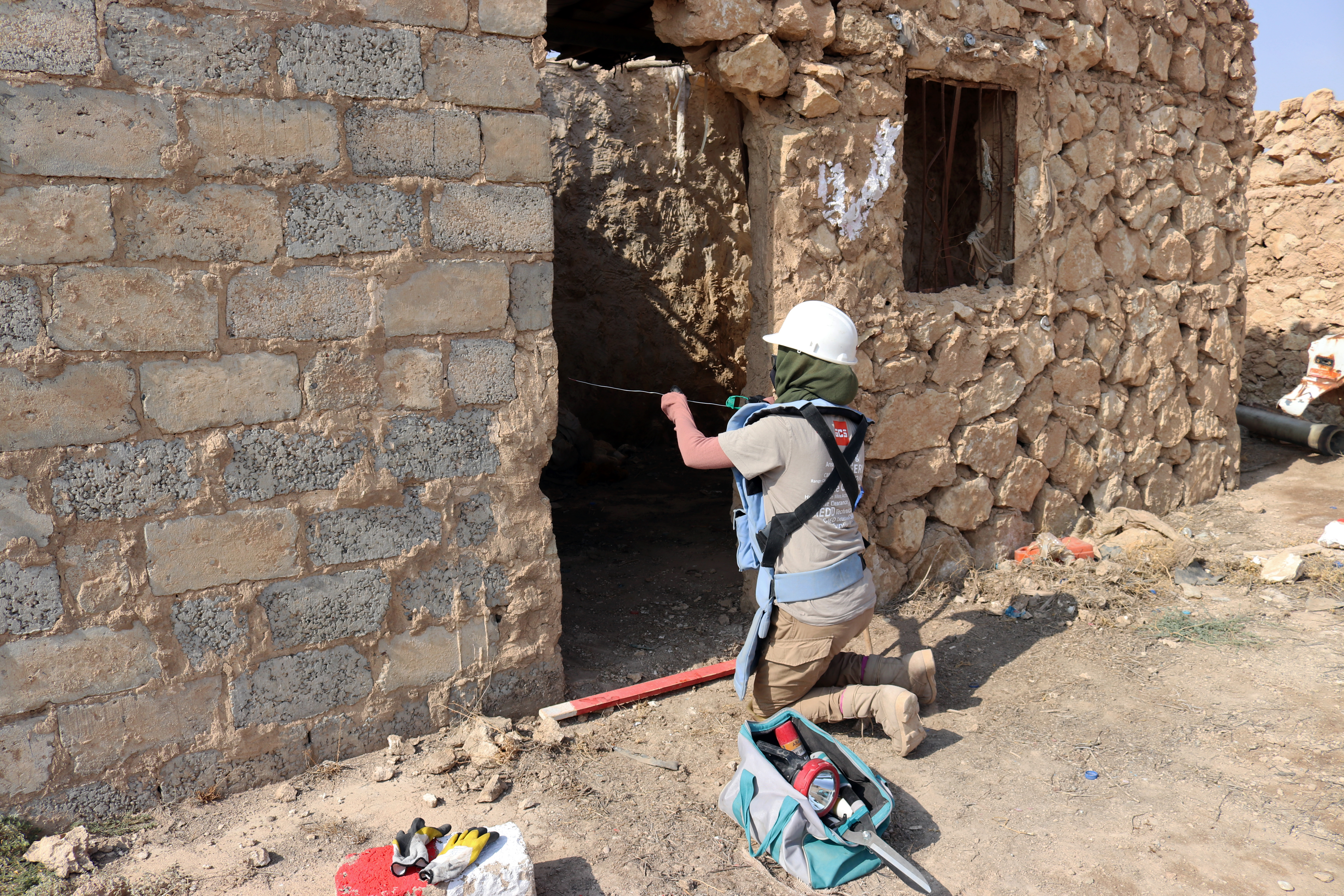UNMAS and UNDP joint efforts for a brighter Sinjar
April 4, 2023

When conflicts arise, their impact can be felt long after the fighting has ended. The aftermath often includes a range of societal scars, such as economic decline and social unrest. Some conflicts even leave behind deadly remnants, like landmines, which can remain active for years and pose a serious and direct risk to the lives of innocent civilians. Iraq is one of the most contaminated countries with deployed mines, resulting from successive conflicts through decades.
Landmines are devastating legacies of armed. These hidden explosive devices, often constructed by hand, are strategically buried during times of war to inflict harm on opposing forces. However, long after the fighting has ceased, these weapons remain buried in the earth, posing an ongoing threat to innocent civilians. Despite efforts to clear them, landmines continue to cause casualties and impede the recovery of communities affected by conflict.
The United Nations Mine Action Service (UNMAS) Iraq programme was re-established in 2015 at the request of the Iraqi government and the United Nations Assistance Mission for Iraq (UNAMI) with the task of starting the comprehensive and complex process of clearing explosive ordnance (EO), mainly improvised explosive devices (IEDs) in nature, left from the conflict with the Islamic State of Iraq and the Levant (ISIL). The work of UNMAS supported the restoration and resumption of basic services and the safe and dignified return of internally displaced persons (IDPs) to the areas liberated from ISIL.
Since April 2019, UNMAS and its implementing partners have been operating in the Sinjar district in northwestern Iraq. It is a high-risk area largely contaminated with IEDs. As a result, towards the end of 2022, over 2,207,837 square meters of contaminated land have been cleared, and over 2,983 items of EO have been rendered safe and removed.

UNMAS has played a crucial role in post-conflict reconstruction efforts in Sinjar, and its work has opened the door for other humanitarian and development agencies, such as UNDP, to undertake vital restoration projects in the region. Through UNDP's efforts, the Sinjar Court House has been reopened, restoring access to the judicial system for local residents. In addition, over 9,500 people now have access to clean drinking water thanks to the installation of a reserve osmosis system. Furthermore, 60 municipality shops and three schools in western Ninewa have been rehabilitated, providing critical support to the local economy and education system.

 Locations
Locations